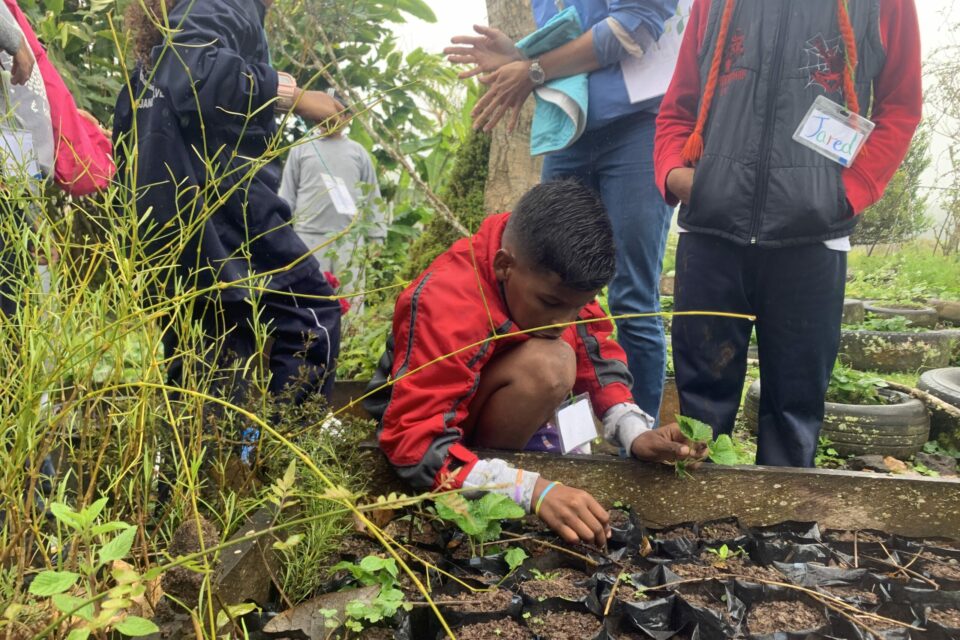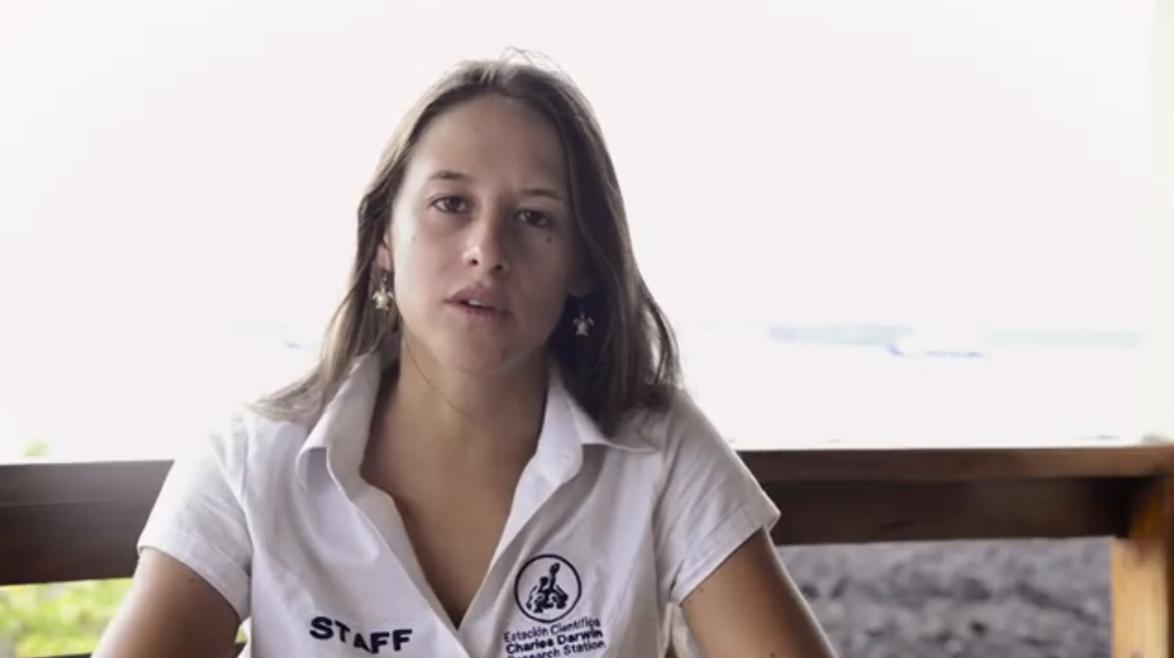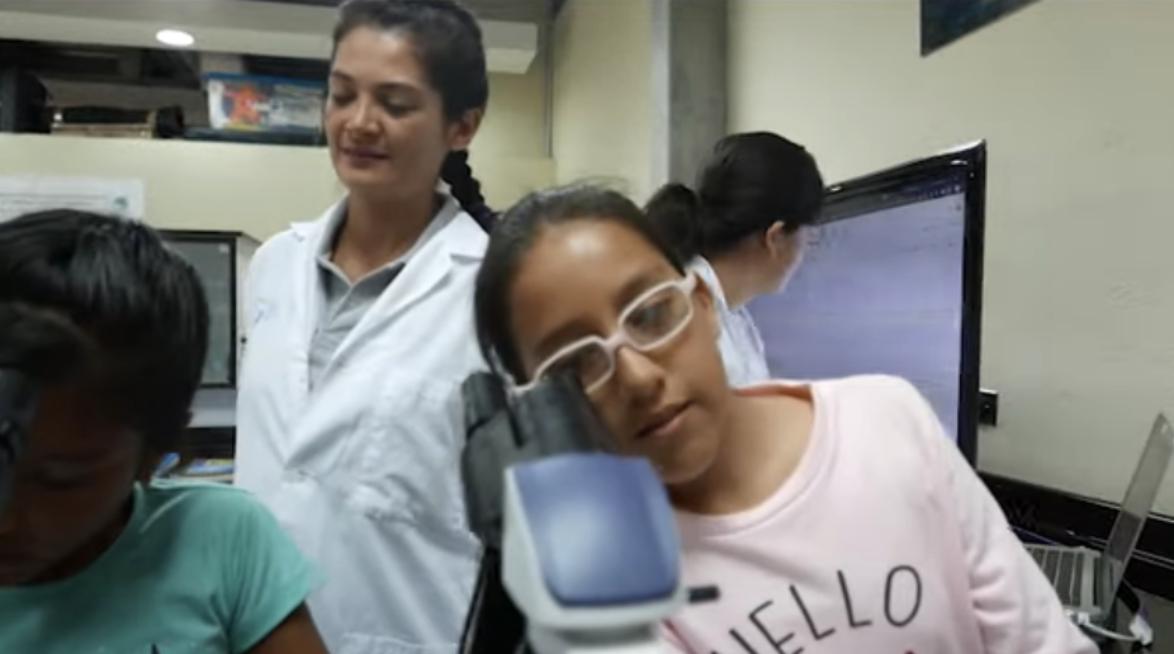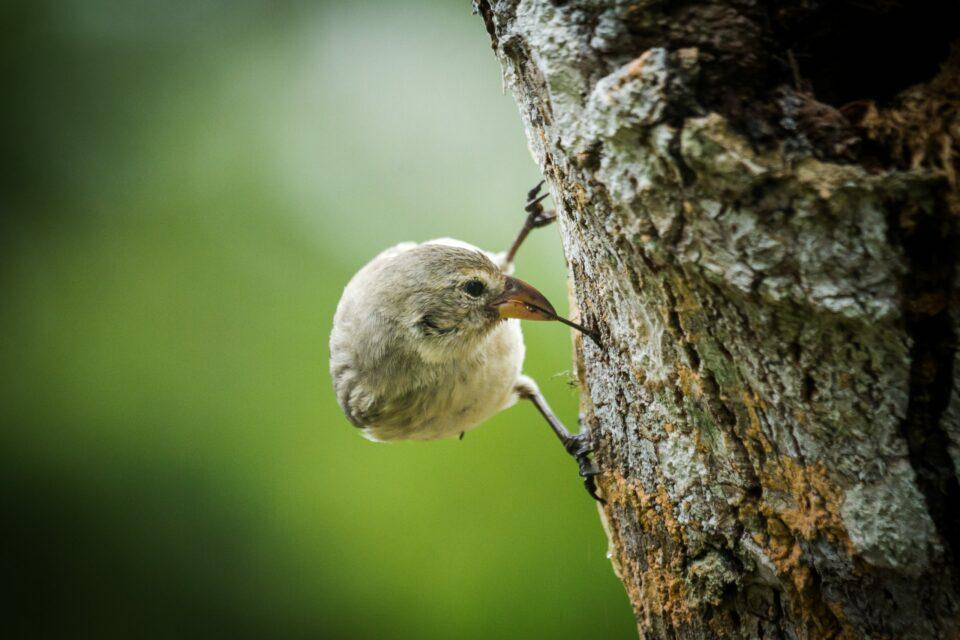

Celebrating women in science
According to UNESCO Institute of Statistics data, less than 30% of the world's scientific researchers are women.
Within our Galapagos scientific network, there are a lot of amazing women in science to celebrate. They are working hard to protect the Islands and its unique species and magnificent ecosystems. This blog highlights some of the amazing women working on our projects.
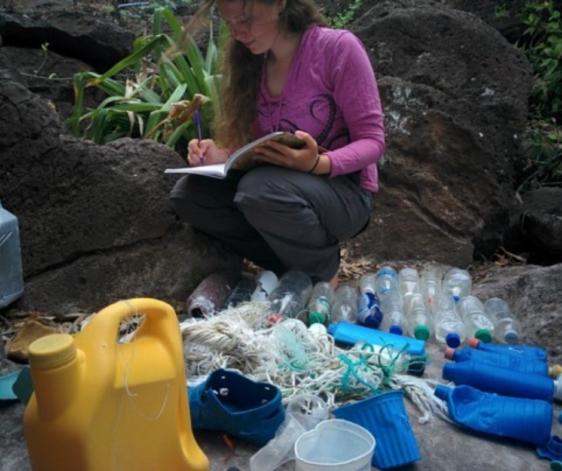
Jen Jones
Jen Jones is GCT’s Head of Programmes and a PhD student at the University of Exeter researching the impacts of microplastics on the Galapagos marine food web. She started working at GCT in 2011 and has been fighting to help protect the Galapagos Islands ever since.
“From helping write multi-million dollar grant applications to sieving sand for hours in 35-degree heat, she works tirelessly to fight for better for the Galapagos Islands, their conservation and for the people there too” – One of Jen’s colleagues at the University of Exeter.
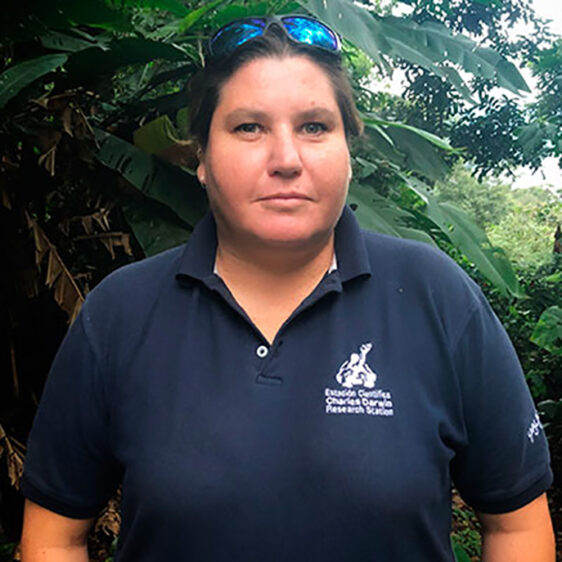
Inti Keith
In 1977, the Charles Darwin Foundation hired its first female scientist. In 2020, 55% of its team were women. One of these women is Dr Inti Keith, a Senior Marine Biologist who is leading the Marine Invasive Species Programme, which forms part of our Plastic Pollution Free Galapagos Programme. Inti was recently selected for “The Explorers Club – fifty people changing the world” as one of the remarkable women the world needs to know about.
Sofía Green
Sofía grew up in mainland Ecuador but was always connected with the Galapagos Islands through her parents’ work in conservation. After graduating from university, she moved to the Islands to work towards their conservation. As well as working with the Marine Invasive Species Team at the Charles Darwin Research Station, Sofía also works as a Research Assistant and Data Analyst at the Galapagos Whale Shark Project. In this video, Sofia discusses some of the barriers to getting into science and why she chose a career in biology.
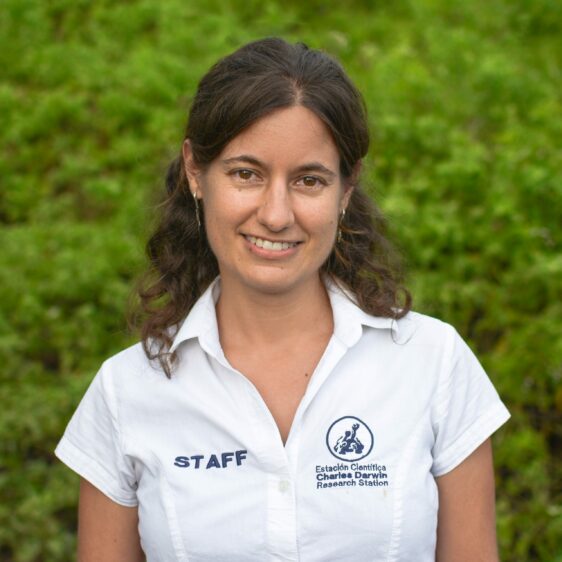
Ainoa Nieto
Dr Ainoa Nieto is a Wildlife Veterinarian and Researcher at the Charles Darwin Foundation and works on the Galapagos Tortoise Movement Ecology Programme. She is currently conducting a health assessment of the giant tortoises to better understand their health status and its implications for the conservation of the entire ecosystem.
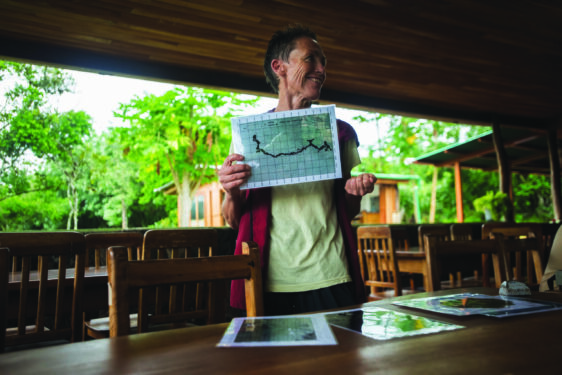
Anne Guézou
Anne is GCT’s Education and Outreach coordinator on Santa Cruz – she delivers our extra-curricular environmental education opportunities and supports teachers and their classes with engaging outreach sessions in the field. She is a botanist by training but also has a wealth of environmental education experience. Anne is instrumental in our Connecting with Nature programme. She supports local schools, students, Ecology Project International (EPI), Galapagos National Park (GNP), our Galapagos Tortoise Movement Ecology Programme (GTMEP) and our Plastic Pollution Free Galapagos Programme.
Gills Club
According to UNESCO data (2014 – 2016), only around 30% of female students select STEM-related subjects in higher education. That’s one of the reasons why we’re proud to support Gills Club, which aims to engage more girls in shark science – led by female researchers at the Galapagos Science Center.
Of the 30,000 people who live on Galapagos, 40% are under the age of 15 years. It is estimated that 90% of children living on the Islands have never been ‘out’ into the National Park – and have never seen much of the wildlife tourists enjoy. Girls at Gills Club are given opportunities to see wildlife that they would otherwise not encounter and gain scientific skills, self-confidence, and passion for protecting their Islands’ wildlife.
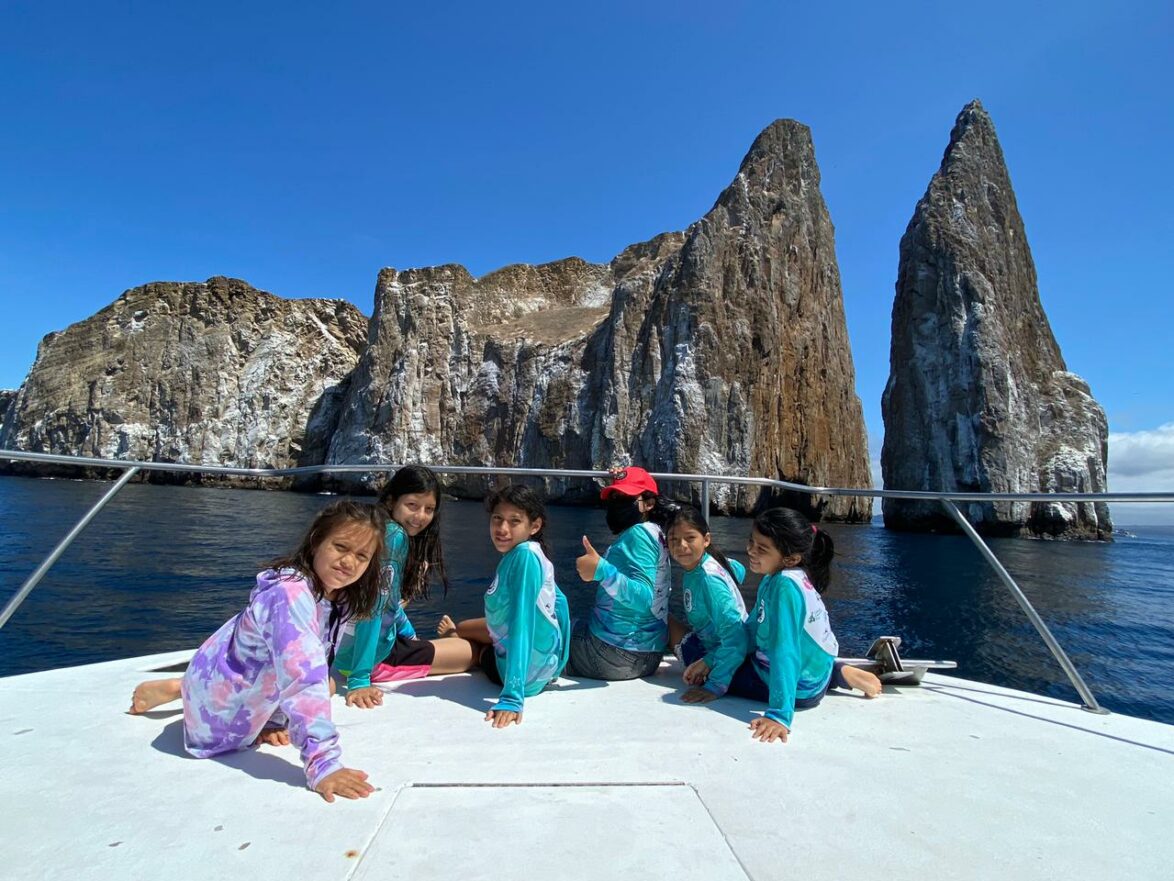
Camila Ojeda, a 10-year-old girl who has been an active member of the Gill’s Club since 2019, said, “I have read that a lot of women around the world have succeeded in doing science, but to do so they had to face many problems. Now girls have more opportunities to learn from science and research. I feel that being part of Gill’s Club motivates me to follow my wishes and dreams of protecting animals and that this will be very important for the conservation of many species in Galapagos and wherever I am.”
Thank you to Universidad San Francisco de Quito, Galapagos Science Center, Diana Alexandra Pazmiño Jaramillo and all the amazing women behind the scenes includig Yasuni Chiriboga, Lauren Goodman and Ángela Palomino who help make Gills Club possible.
< 30 %
of the world's scientific researchers are women
Related articles

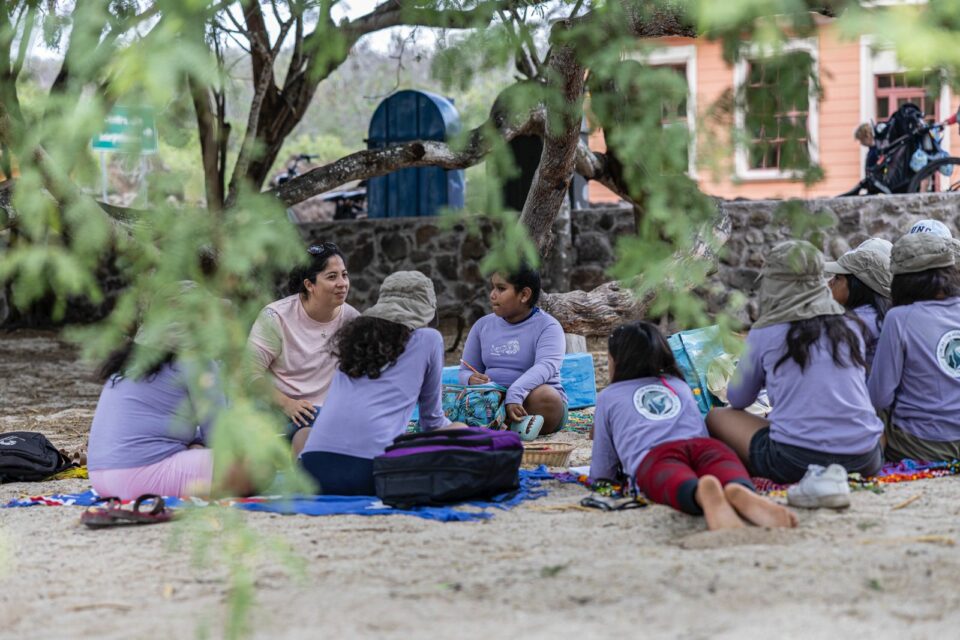
Gills Club: Empowering young women in Galapagos
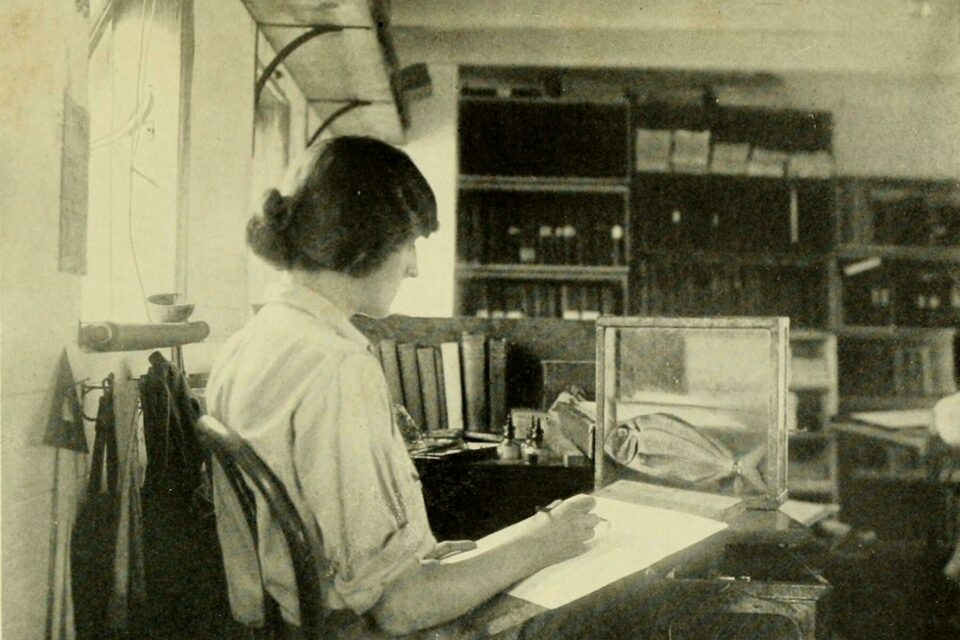
Isabel Cooper: A pioneering woman in Galapagos
